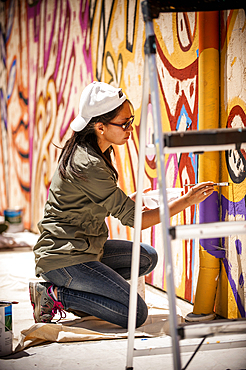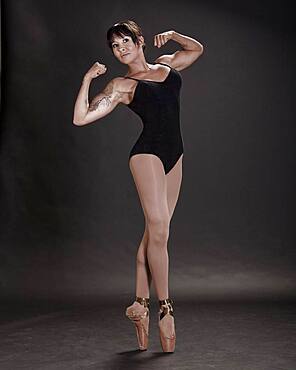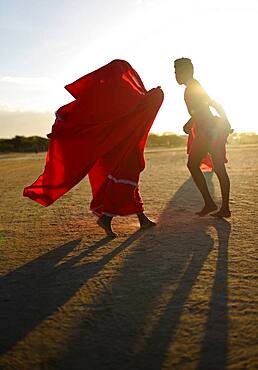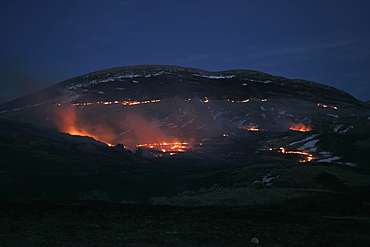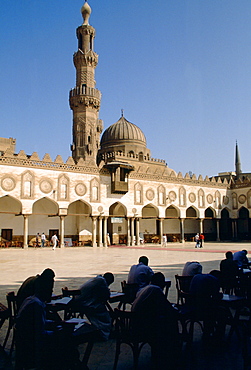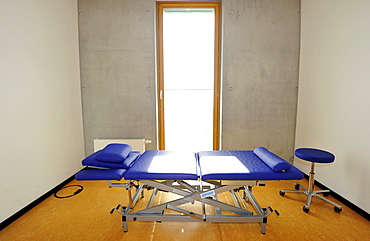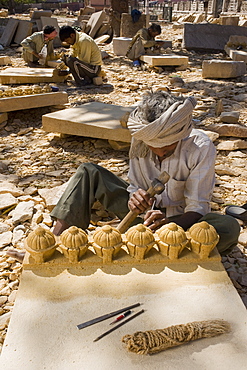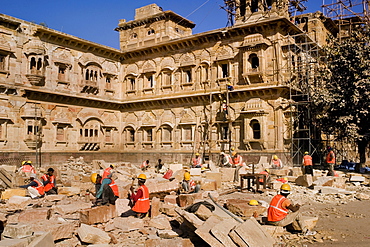Recent searches
Loading...
860-290466 - Carrot 'Oxhella', improvement of the famous 'Chantenay' carrot
1178-40612 - Woman kneeling on tarp painting mural on wall
1178-37774 - Face of Caucasian woman illuminated by energy efficient light bulb
1178-34514 - Hispanic ballet dancer flexing muscles
1178-32879 - Mixed race woman holding fluorescent light bulb
1178-32349 - African woman receiving spa facial treatment
1178-32350 - African woman receiving spa facial treatment
1350-1865 - Yonna dance, also called Chichamaya, carries a considerable symbolic charge for the Wayuu indigenous people of Colombia, representing three basic principles for this tribal group: Social equality, collective solidarity and the improvement of relations between the human being and the Cosmos.
1350-1859 - Yonna dance, also called Chichamaya, carries a considerable symbolic charge for the Wayuu indigenous people of Colombia, representing three basic principles for this tribal group: Social equality, collective solidarity and the improvement of relations between the human being and the Cosmos.
1350-1871 - Yonna dance, also called Chichamaya, carries a considerable symbolic charge for the Wayuu indigenous people of Colombia, representing three basic principles for this tribal group: Social equality, collective solidarity and the improvement of relations between the human being and the Cosmos.
1350-1860 - Yonna dance, also called Chichamaya, carries a considerable symbolic charge for the Wayuu indigenous people of Colombia, representing three basic principles for this tribal group: Social equality, collective solidarity and the improvement of relations between the human being and the Cosmos.
1350-1861 - Yonna dance, also called Chichamaya, carries a considerable symbolic charge for the Wayuu indigenous people of Colombia, representing three basic principles for this tribal group: Social equality, collective solidarity and the improvement of relations between the human being and the Cosmos.
1350-1862 - Yonna dance, also called Chichamaya, carries a considerable symbolic charge for the Wayuu indigenous people of Colombia, representing three basic principles for this tribal group: Social equality, collective solidarity and the improvement of relations between the human being and the Cosmos.
1350-1866 - Yonna dance, also called Chichamaya, carries a considerable symbolic charge for the Wayuu indigenous people of Colombia, representing three basic principles for this tribal group: Social equality, collective solidarity and the improvement of relations between the human being and the Cosmos.
1350-1870 - Yonna dance, also called Chichamaya, carries a considerable symbolic charge for the Wayuu indigenous people of Colombia, representing three basic principles for this tribal group: Social equality, collective solidarity and the improvement of relations between the human being and the Cosmos.
1350-1868 - Yonna dance, also called Chichamaya, carries a considerable symbolic charge for the Wayuu indigenous people of Colombia, representing three basic principles for this tribal group: Social equality, collective solidarity and the improvement of relations between the human being and the Cosmos.
1350-1858 - Yonna dance, also called Chichamaya, carries a considerable symbolic charge for the Wayuu indigenous people of Colombia, representing three basic principles for this tribal group: Social equality, collective solidarity and the improvement of relations between the human being and the Cosmos.
1350-1869 - Yonna dance, also called Chichamaya, carries a considerable symbolic charge for the Wayuu indigenous people of Colombia, representing three basic principles for this tribal group: Social equality, collective solidarity and the improvement of relations between the human being and the Cosmos.
1350-1863 - Yonna dance, also called Chichamaya, carries a considerable symbolic charge for the Wayuu indigenous people of Colombia, representing three basic principles for this tribal group: Social equality, collective solidarity and the improvement of relations between the human being and the Cosmos.
1350-1864 - Yonna dance, also called Chichamaya, carries a considerable symbolic charge for the Wayuu indigenous people of Colombia, representing three basic principles for this tribal group: Social equality, collective solidarity and the improvement of relations between the human being and the Cosmos.
1350-1867 - Yonna dance, also called Chichamaya, carries a considerable symbolic charge for the Wayuu indigenous people of Colombia, representing three basic principles for this tribal group: Social equality, collective solidarity and the improvement of relations between the human being and the Cosmos.
1116-49550 - Engineering students watching professor cleaning photovoltaic panel to demonstrate improvement in efficiency
1116-50233 - Sign for the Bow Valley Parkway in Banff National Park; Improvement District No. 9, Alberta, Canada
1116-50236 - Waterfowl Lakes and Rocky Mountains along the Icefield Parkway; Improvement District No. 9, Alberta, Canada
1116-50235 - Bright blue water of Peyto Lake in the Rocky Mountains of Banff National Park along the Icefield Parkway; Improvement District No. 9, Alberta, Canada
1116-50234 - Bow Lake in the Rocky Mountains of Banff National Park along the Icefield Parkway; Improvement District No. 9, Alberta, Canada
1178-30030 - Woman repairing sink while watching DIY tutorial on laptop
1178-29771 - Senior woman high-fiving fitness instructor
1178-29772 - Senior man high-fiving fitness instructor
1178-29773 - Senior woman high-fiving fitness instructor
1178-29774 - Senior people having fitness class with instructor
1116-48759 - Sunrise illuminating the peaks of the Rocky Mountains over Bow Lake, Banff National Park, Improvement District No. 9, Alberta, Canada
1116-47052 - A Young Woman Uses A Snowblower In The Deep Snow, Homer, Alaska, United States Of America
1116-47054 - A Young Woman Removes Snow From The Roof Of Her House, Homer, Alaska, United States Of America
1116-47051 - A Father And Daughter Removing Deep Snow At The Side Of Their House, Homer, Alaska, United States Of America
1116-47053 - Directly Above A Man Using A Snowblower, Homer, Alaska, United States Of America
1116-45104 - Controlled Burn In Wildlife Management Area
1116-45105 - Controlled Burn In Wildlife Management Area
1161-8691 - Home improvement, a renovation project restoring a 17th century Cotswold old stone cottage in Swinbrook in the Cotswolds, Oxfordshire, England, United Kingdom, Europe
1161-8689 - Home improvement, cottage renovation and newly built dry stone wall constructed of new Cotswold stone by traditional methods at period property, Swinbrook, Oxfordshire, Cotswolds, England, United Kingdom, Europe
1178-1647 - USA, California, Sacramento, California state capitol building, USA, California, Sacramento
832-338371 - Chewing-gum sign, Atherstone, England, UK, Europe
805-666 - Naga village children beneath a local government sign for livelihood improvement through sustainable farming, rural Nagaland, India, Asia
816-5857 - Woman cleaning a giant bird statue on top of a glass cupola on Nezalezhnasti Independence square, Minsk,Belarus, Europe
832-270390 - Volunteers in the Summer in the City program, a community improvement project, painting a mural on a building, Detroit, Michigan, USA
1161-3609 - English dictionaries, including Oxford English, in Beijing book shop, China
1161-3610 - English dictionaries, including Oxford English, in Beijing book shop, China
1161-931 - Students working within the Alcazhar Mosque in Cairo, Egypt
1161-1155 - Schoolboys at work during a Biology lesson at a school in Kathmandu, Nepal
1109-922 - Renovation work at Abhayagiri Dagoba, Abhayagiri Monastery (Abhayagiri Vihara), Anuradhapura, UNESCO World Heritage Site, Sri Lanka, Asia
321-5334 - Man having haircut in backstreet barber shop, Havana Viejo, Havana, Cuba, West Indies, Central America
321-5333 - Man having haircut in backstreet barber shop, Havana Viejo, Havana, Cuba, West Indies, Central America
832-123746 - Medical treatment room for back training according to the DAVID concept, an apparatus-supported method for the analysis and improvement of the functional condition of the spine
832-123747 - Medical treatment room for back training according to the DAVID concept, an apparatus-supported method for the analysis and improvement of the functional condition of the spine
832-123745 - Medical treatment room for back training according to the DAVID concept, an apparatus-supported method for the analysis and improvement of the functional condition of the spine
733-5422 - Workers and scaffolding on the Abhayagiri Dagoba, Anuradhapura, UNESCO World Heritage Site, Sri Lanka, Asia
733-5423 - Workers and scaffolding on the Abhayagiri Dagoba, Anuradhapura, UNESCO World Heritage Site, Sri Lanka, Asia
832-69084 - Aerial view, new municipal recycling center, Brasssertstrasse, Marl, Ruhrgebiet region, North Rhine-Westphalia, Germany, Europe
17-4722 - Morvi Temple (the Secretariat) an administrative building with a Hindu temple in the centre, built in the 19th century and being restored following the 1997 earthquake, Morvi, Gujarat, India, Asia
17-4718 - Morvi Temple (the Secretariat) an administrative building with a Hindu temple in the centre, built in the 19th century and being restored following the 1997 earthquake, Morvi, Gujarat, India, Asia
724-2418 - Lost-wax casting open air workshop, Amarapura, Mandalay Division, Republic of the Union of Myanmar (Burma), Asia
749-1337 - Men at a local barber's shop, Cachoeira, Bahia, Brazil, South America
846-1040 - Fisherman mending nets, Potamos Tou Liopetri, Cyprus, Europe
1024-312 - Artisan carrying out repairs on the plasterwork relief at the Amber Fort, Rajasthan, India
915-105 - Oil clean up, West Angle Bay, Sea Empress oil spill
915-118 - Oil spill clean up, Suandersfoot, Sea Empress, Pembrokeshire (rr)
1024-311 - Artisans carrying out repairs on the plasterwork relief at the Amber Fort, Rajasthan, India
915-104 - Oil clean up, West Angle Bay, Sea Empress oil spill
915-106 - Oil clean up, West Angle Bay, Sea Empress oil spill
1024-310 - Men and women working on the restoration of the Amber Fort, Jaipur, Rajasthan, India.
915-107 - Oil clean up, West Angle Bay, Sea Empress oil spill
915-103 - Oil clean up, West Angle Bay, Sea Empress oil spill
915-108 - Oil clean up, West Angle Bay, Sea Empress oil spill
915-116 - Oil spill clean up, Suandersfoot, Sea Empress, Pembrokeshire
915-117 - Oil spill clean up, Suandersfoot, Sea Empress, Pembrokeshire (rr)
915-119 - Oil spill clean up, Suandersfoot, Sea Empress, Pembrokeshire
915-120 - Pumping oil from stoney foreshore, MPCU, Wisemen's Bridge, Sea Empress oil spill, Pembrokeshire (rr)
915-109 - Oil clean up, West Angle Bay, Sea Empress oil spill (rr)
915-115 - Oil spill clean up, Suandersfoot, Sea Empress, Pembrokeshire
911-7573 - United Utilities improving the sewerage system in Elterwater, Langdale, Lake District, Cumbria, England, United Kingdom, Europe
698-2880 - Newly restored section of the Great Wall of China, UNESCO World Heritage Site, Mutianyu, Beijing District, China, Asia
802-39 - Wind turbines on Bodmin Moor, near Bodmin, Cornwall, England, United Kingdom, Europe
788-14903 - Portrait of a young woman wearing a traditional clothing and standing with arms akimbo, Peru
788-14893 - Portrait of a young couple with arm in arm in a parade, Arequipa, Peru
788-11545 - Fountain in a park, Charleston, South Carolina, USA
788-5564 - Low angle view of a mature man puckering his lips

